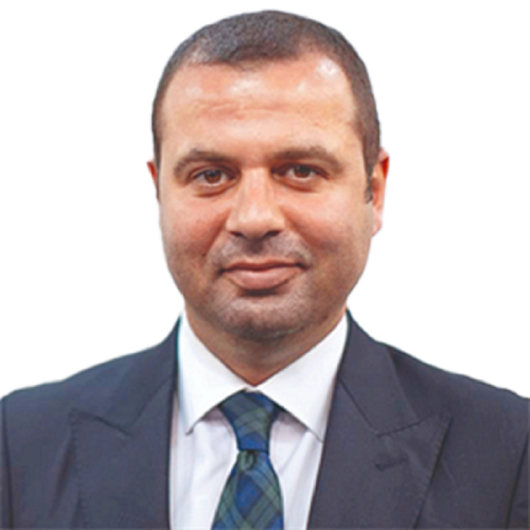Significant developments are unfolding in the region. As Foreign Minister Hakan Fidan also noted, "the conflict in Gaza could spiral into a larger vortex." This is because, except for Turkey, all regional actors view Gaza as a stepping stone to facilitate their strategic gains and are resorting to aggressive policies.
Iran's escalation of tensions in Gaza, extending hundreds of kilometers away to Yemen, and targeting Pakistan and Erbil with missiles are part of this trend. Similarly, Israel's recalibration of its objectives regarding southern Lebanon and Syria, targeting senior Iranian commanders in Syria, also falls into this pattern. The Russians are making their presence felt near the Golan Heights. The deployment of US warships to the region and Iran targeting proxy forces in Iraq and Syria can also be interpreted from this perspective. The attacks by the PKK terrorist organization, acting as proxies for multiple actors, against our soldiers in northern Iraq are also part of the same equation.
THE HOTTEST TOPIC: TERRORISM
Iranian President Raisi was in Ankara during this challenging conjuncture. President Erdoğan met with Raisi within the framework of the 8th High-Level Cooperation Council meeting, which was postponed to Wednesday due to the terrorist attack in Iran. Regional issues such as Gaza, Iraq, Syria, South Caucasus, and Pakistan were on the agenda. All of them are quite challenging topics.
Turkey and Iran's approach to regional issues, particularly in Gaza in a humanitarian context, remains close, but divergence begins in Syria and deepens in Iraq. The situation escalates in Iraq and turns into a precipice in the South Caucasus, particularly in Azerbaijan. While there are common interests and threats and areas for cooperation, the gap widens as we move northward. Until recently, the Caucasus was the hottest topic in bilateral relations. It seems to have been replaced by the PKK terrorist organization's presence in Syria and Iraq.
FIDAN'S SUBTEXT MESSAGE
Foreign Minister Hakan Fidan provided information to the Grand National Assembly last week regarding the latest developments following the terrorist attacks in northern Iraq. There was a significant emphasis that went unnoticed. He listed countries involved with the PKK terrorist organization one by one. He highlighted how the US (and some European countries) supported the organization under the pretext of combating ISIS. He mentioned Russia turning a blind eye to the organization west of the Euphrates. He didn't overlook Iran either. In summary, along the Iranian border, there are armed group camps and PKK extensions within Iran. PKK, struggling to recruit members in Turkey, seeks to expand its influence through Syria and Iran.
Turkey seeks joint action against Iran, the PKK in Iraq, the YPG in Syria, and the PKK's Iranian wing, PJAK. President Erdoğan underlined this point emphatically during the press conference. Although Raisi said, "Turkey's security is our security," he did not use any binding expressions other than mentioning relevant terrorist organizations, excluding ISIS.
IRAQ'S AGENDA WILL EXPAND
For Turkey, the source of terrorism and threat lies in northern Iraq and Syria. Iran also has plans for these two regions. These plans contradict Turkey's approach and sensitivities. It can be said that this divergence will deepen in the coming period.
Iran cannot agree with the Barzani administration. Last week, it claimed to have targeted Mossad elements in the region and struck Erbil with missiles. In Iraq, it supports a three-legged axis against Barzani - a threat to Turkey's security as well. This axis is based on cooperation between the PKK terrorist organization, the Hashd al-Shaabi, and Bafel Talabani. The PKK and Talabani work with both the US and Iran.
Information from the region indicates that this axis will intensify tensions in northern Iraq with the arrival of spring, potentially leading to internal conflicts. Every escalation where the PKK and Talabani gain ground will threaten Ankara's security.
HEAD OF MIT'S BAGHDAD CONTACTS
Ankara values Baghdad's security and stability. In this regard, a strong dialogue based on mutual benefit has developed between the two countries. The Development Road Project (essentially a security plan) is a product of this dialogue. A Turkey-Iraq Security Summit was held in Ankara on December 19. After that summit, Iraq, for the first time, defined the PKK as a terrorist organization. Subsequently, terrorist attacks were carried out in northern Iraq. Ankara not only focused on the terrorist organization but also put Bafel Talabani under the spotlight. It issued a clear warning. (Note: Talabani ignores warnings. Energy infrastructure belonging to the terrorist organization was targeted with drones in northern Syria. Bafel Talabani is in talks with the terrorist organization to meet its energy needs.)
Head of MIT Ibrahim Kalın made a surprise visit to Baghdad in recent days and met with Iraqi President Reşid and Prime Minister Sudani. It seems that Talabani's side is uneasy about this visit (and other developments). Talabani's media reports, within the context of Fidan and Kalın's contacts, state that: 1. Ankara requested a parliamentary resolution from Iraq defining the PKK as a terrorist organization, 2. The locations of PKK in Iraq were conveyed to Baghdad, emphasizing that these points are clear targets for Turkey, 3. Iraqi Prime Minister Sudani signaled that he would not oppose Turkey's operations - with cautious wording.
It seems that the region will be quite active with the arrival of spring.




















